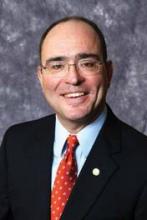While many subspecialists are bracing for steep payment cuts due to coding changes set to take effect next year, primary care physicians could earn more money, thanks to the creation of new transitional care management codes.
Starting Jan. 1, physicians can get paid for the management of complex patients who have recently been discharged from a hospital or skilled nursing facility. Medicare will pay between $164 and $231, depending on the complexity of the patient, for care during the 30-day period after discharge.
"That is significant and it is enough to catch the attention of internists," said Shari Erickson, director of regulatory and insurer affairs at the American College of Physicians.
The American Medical Association Current Procedural Terminology (CPT) Editorial Panel created the transitional care management services codes (99495 and 99496) earlier this year; the codes were announced as part of the Medicare Physician Fee Schedule for next year.
CPT code 99495, designed for patients of moderate complexity, requires physicians or their staff to make direct contact, by phone or electronically, with the patient or caregiver within 2 business days of discharge. A face-to-face visit with the patient is required within 14 calendar days of discharge.
CPT code 99496 is meant to be used for patients requiring high-complexity medical decision making. This code requires direct contact with the patient or caregiver within 2 business days and a face-to-face visit within 7 calendar days.
Both codes may include several other non–face-to-face services that could be provided by clinical staff or physicians within the 30 days after discharge. Some staff services include assessment of medication adherence, education of patients and caregivers in self-management, and communication with home health agencies. Physician services include reviewing the discharge information, following up on diagnostic tests, establishing referrals for community resources, and educating patients and families.
For some physicians, the new codes will be a chance to get paid for work they are already doing, Ms. Erickson said. Others may start doing this work for the first time because of the new payment, she said.
For those starting out in transitional care, it’s a chance to move away from the traditional visit-based fee system and toward more of a patient-centered medical home model without being part of a pilot project. "It gives them an opportunity within the existing fee schedule to start to do this work and get paid for it," Ms. Erickson said.
The acceptance of the transitional care management codes by CMS is a move in the right direction, said Dr. Jeffrey J. Cain, president of the American Academy of Family Physicians.
"We know that if we can improve communication and improve collaboration as patients come out of the hospital, we can prevent unnecessary readmissions and increase quality of care," Dr. Cain said. "Previously there was no fiscal incentive to do that."
As with all new codes, documentation will be critical. Physicians should be vigilant about documenting appropriately, Ms. Erickson said.
Another challenge will be identifying these patients in a timely fashion – physicians will need to know which of their patients could benefit from these services as they transition home from inpatient or nursing home care, Ms. Erickson said.
Office-based physicians who don’t see patients in the hospital should start building their relationships with their hospitalist colleagues, Dr. Cain advised.
"This is a new way of thinking about those patients," Dr. Cain said. "You’re not waiting for them to walk in your door. You’re actively assisting in their management before they reach your door."
But next year’s fee schedule isn’t all good news. Officials at the Centers for Medicare and Medicaid Services refused to pay for a series of new complex chronic care coordination services codes that were also created by the CPT Editorial Panel earlier this year.
The new codes (99487, 99488, and 99489) were designed for highly complex patients with chronic conditions who are living at home or in an assisted-living facility. The codes would be reported only once per month and would include several non–face-to-face care coordination services such as communicating with the patient and caregiver, collecting health outcomes data and registry documentation, communicating with home health agencies, assessing medication management, and developing and maintaining a comprehensive care plan.
ACP officials plan to continue to push for the codes as part of the next fee schedule. "That’s going to be an ongoing effort," Ms. Erickson said.
While AAFP officials will also continue to lobby for the payment of these codes, Dr. Cain said the family doctors are working on advancing care coordination payment outside of the traditional fee schedule coding framework. For instance, the AAFP has been a big supporter of the Comprehensive Primary Care Initiative, a multipayer pilot project that allows primary care practices to earn a monthly care management fee in exchange for offering enhanced services such as extended hours, use of electronic health records, and coordination of care with other providers. The project is being spearheaded by the Center for Medicare and Medicaid Innovation and, if successful, could be rolled out nationally.


